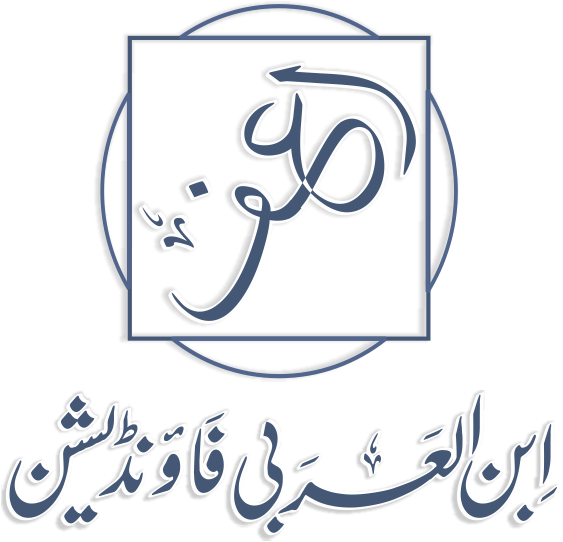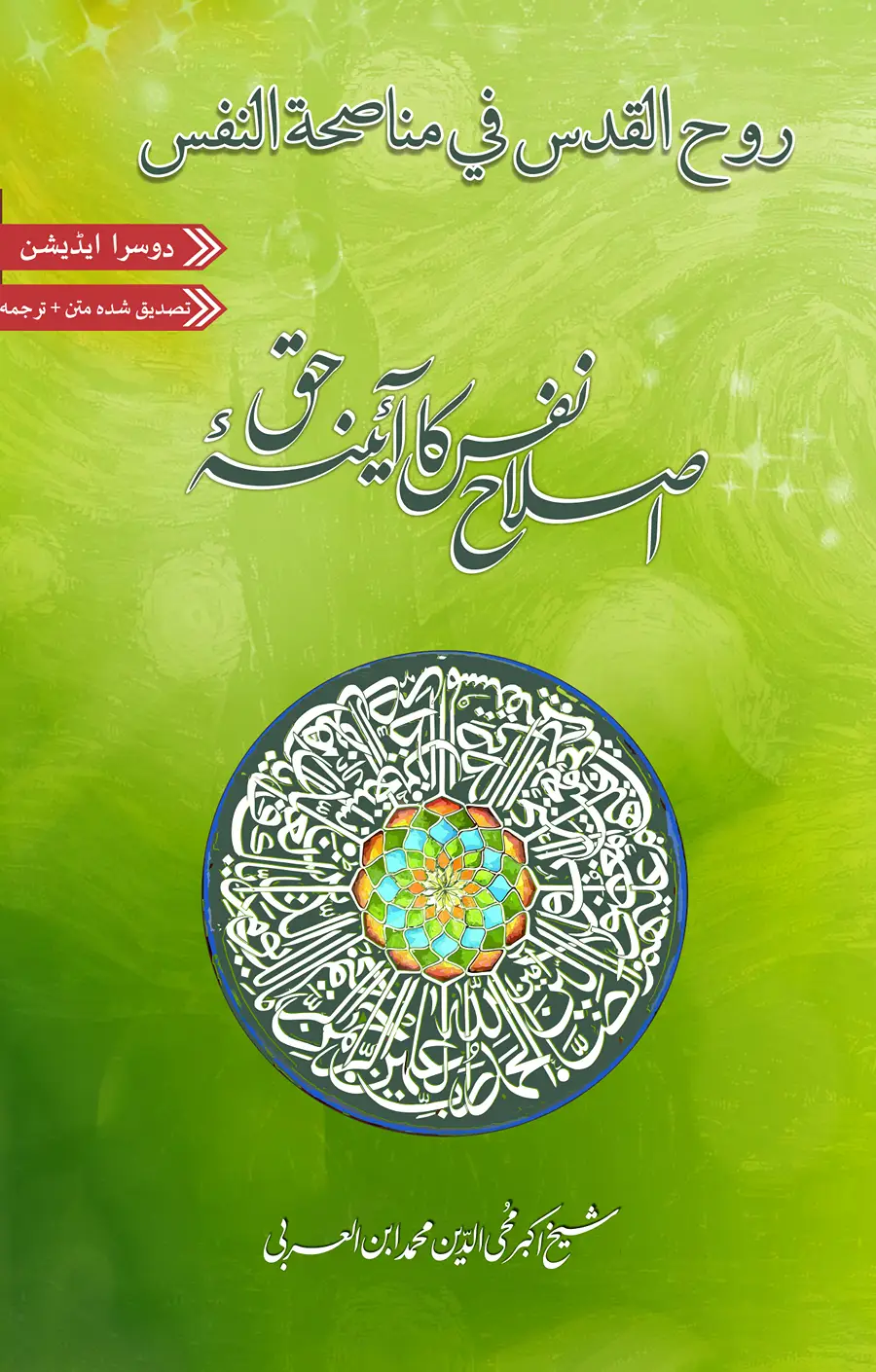Ruh al-Quds fi munasahat al-nafs
Islah e Nafs ka ayeena e haqq
by Shaykh al-Akbar Muhyiddin Ibn al-Arabi
The Ruh al-Quds fî munâsahat al-nafs by Ibn ‘Arabî is a remarkable hagiographical work. In its introduction, the author strongly criticizes contemporary Sufism, condemning practices such as the adoption of Sufi dress, the khânaqâh system, and the Sufi practice of samâ’. However, it is important to note that self-criticism by Sufi authors is not a new phenomenon, as Ibn ‘Arabî himself acknowledges that al-Qushayrî also rebukes such practices in his Risâla.
Despite his criticisms, Ibn ‘Arabî does offer positive contributions to the Sufi tradition. For example, he explores the theme of companionship, which he believes has become “flattery-based” in this corrupt age. Despite this, Ibn ‘Arabî himself managed to form over fifty meaningful companionships, some of which he has recorded in his work.
7 Manuscripts
7 Key Manuscripts Collated from the most reliable global sources (Tier 1 & Tier 2).
472 Pages
Best Arabic Critical Edition, checked and collated with the best available manuscripts
Urdu Translation
Complete parallel Urdu translation, easy to understand and comprehend
Edition Highlights
The Ruh al-Quds fî munâsahat al-nafs is divided into three sections, each roughly equal in length, which include biographical accounts. However, the work also follows a thematic division that corresponds to the classic Sufi itinerary of mi’râj (ascent), ruju’ (return), and the divine sphere (mushâhada). Overall, the Ruh al-Quds fî munâsahat al-nafs is a valuable contribution to the Sufi tradition, offering both criticisms and insights into the spiritual path. In this book, Ibn al-Arabî is writing to his friend ‘Abd al-‘Aziz al-Mahdawî and expressing his admiration for his friend’s spiritual achievements. Ibn al-Arabî praises his friend for his acknowledgement and respect of knowledge and those who possess it, as well as his lack of desire for miracles or special spiritual states. He also notes his friend’s submission to God, humility, and respect for all people regardless of their social status.
Furthermore, Ibn al-Arabî admires his friend’s lack of concern for worldly praise or the attention of rulers, which he sees as a manifestation of just treatment. Ibn al-Arabî also praises his friend’s honesty in admitting when he doesn’t know something and his willingness to learn from others. He believes that his friend’s qualities are exceptional and deserving of admiration, with a station that is unaffected by fluctuating spiritual states and whose brilliance surpasses even supererogatory works.
Finally, Ibn al-Arabî notes his friend’s unique search for knowledge of humanity and time, and his belief that this knowledge is divinely necessary. Overall, this passage is a testament to Ibn al-Arabî’s appreciation for his friend’s spiritual qualities and achievements.
Critical Edition
based on 7 best Manuscripts
Details
Book Data
Author: Shaykh al-Akbar Ibn al-Arabi
Review: Ahmed Muhammad Ali
Editor: Abrar Ahmed Shahi,
Translator: Abrar Ahmed Shahi
Pages: 472
Dimensions: 255 × 165 mm
Edition: 2nd. 2016
Urdu Translation
By Abrar Ahmed Shahi
اصلاح نفس كا آئينه حق
“روح القدس” شیخ اکبر کی کتابوں میں ایک امتیازی حیثیت رکھتی ہے؛ یہ ایک عام فہم کتاب ہے، کیونکہ اِس میں واقعات سے بات سمجھانے کی کوشش کی گئی ہے۔ اِس میں تصوف کو معاشرتی پہلو سے جوڑ کر پیش کیا گیا ہے۔ اِس کتاب میں آپ نے اپنے دور میں موجود تصوف کی خرابیوں کی طرف نہ صرف اشارہ کیا ہے بلکہ اُن نام نہاد صوفیوں کو بھی آڑے ہاتھوں لیا ہے جو دنیاوی یا نفسانی اغراض کے لیے تصوف کا لبادہ اوڑھے بیٹھے ہیں۔ شروع سے ہی یہ دیکھنے میں آیا ہے کہ معاشرے کا کوئی طبقہ – چاہے حکام، فقہا، صوفیا یا اِن طبقات سے متعلقہ لوگ – کسی قاعدے کا پابند ہی نہیں ہونا چاہتا، بلکہ زیادہ تر لوگ تو ایسی پابندیوں کو اپنے لیے باعث آزار سمجھتے ہیں۔بیشک جنید بغدادی بھی حق بجانب تھے جب انہوں نے کہا “اب تصوف ایک جام، ایک گدی اور ایک چوغہ ہو گیا، اب تصوف ایک نعرہ ایک وجد اور ایک رسم ہو گیا۔” امام قشیری کا یہ قول بھی حق ہے: “ہمارے زمانے میں اہل طریقت کا صرف نشان ہی باقی رہ گیا ہے۔ طریقت میں کمزوری آ گئی، نہیں بلکہ طریقت در حقیقت مٹ گئی۔” اور شیخ اکبر بھی سچ کہتے ہیں کہ “اہل سماع اور وجد نے اپنے دین کو کھیل تماشا بنا رکھا ہے۔” یہ اس لیے کہ ان لوگوں کی ہمیشہ یہی کوشش رہی کہ لوگوں کو ایک قاعدے میں لایا جائے لیکن جب وہ دیکھتے ہیں کہ لوگ “مقدس مقدس” کی رٹ لگا کر کسی قاعدے کو قبول نہیں کرنا چاہتے تو پھر لوگوں کے بارےمیں ان کے خیالات یہی ہوا کرتے ہیں۔
اس کتاب میں شیخ اکبر نے مختلف طریقوں سے دین اور تصوف کے اِسی ظاہری اور سماجی پہلو کو اجاگر کرنے کی کوشش کی ہے۔ کتاب پانچ حصوں میں منقسم ہے اور ہر حصے کو کتاب میں ایک مناسب ترتیب سے لایا گیا ہے۔ جس طرح کسی کھیتی کو تیار کرنے کے لیے مختلف مراحل میں مختلف قسم کے کام کرنا پڑتے ہیں ویسے ہی اس نفس کو قابو کرنے کے لیے کبھی جذبات کا سہارا لینا پڑتا ہے کبھی واقعات سے عبرت دلانی پڑتی ہے اور کبھی دلیل اور حجت سے اس کا منہ بند کرنا پڑتا ہے۔ شیخ اکبر نے اس کتاب میں یہ تمام ذرائع استعمال کیے ہیں جس کی وجہ سے ہم یہ کہہ سکتےہیں کہ نفس کو راہ پر لانے کے لیے یہ ایک حکیم حاذق کا نسخۂ کیمیا ہے۔
Manuscript Images
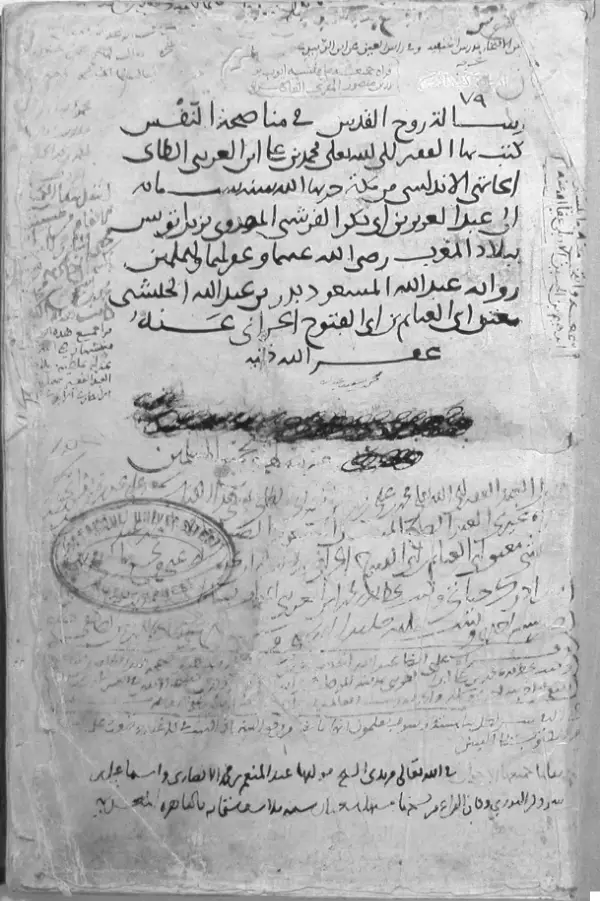
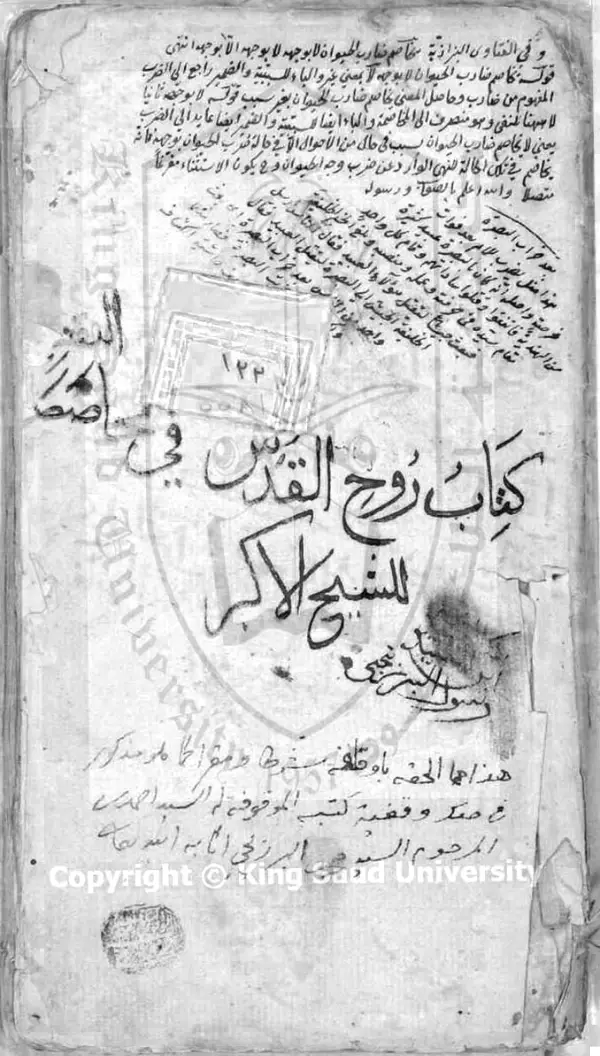
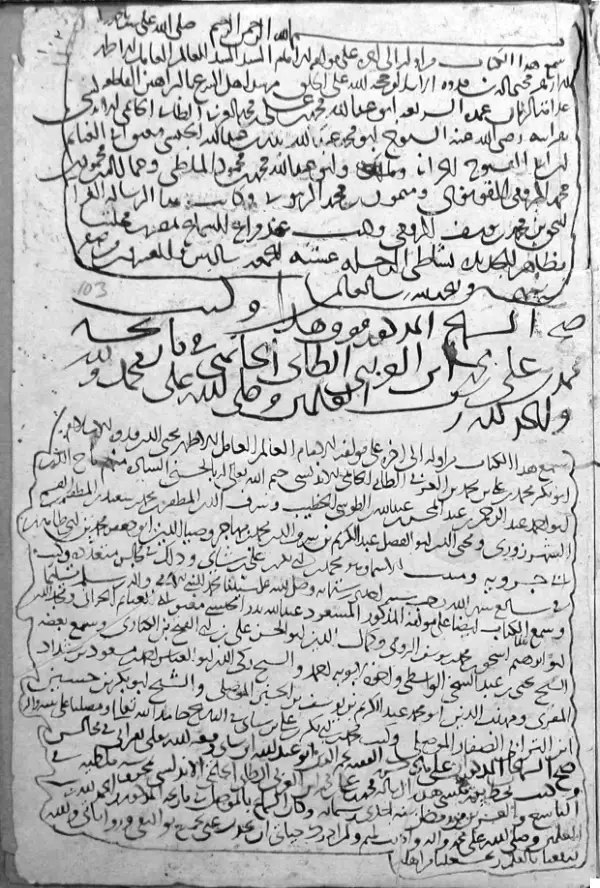
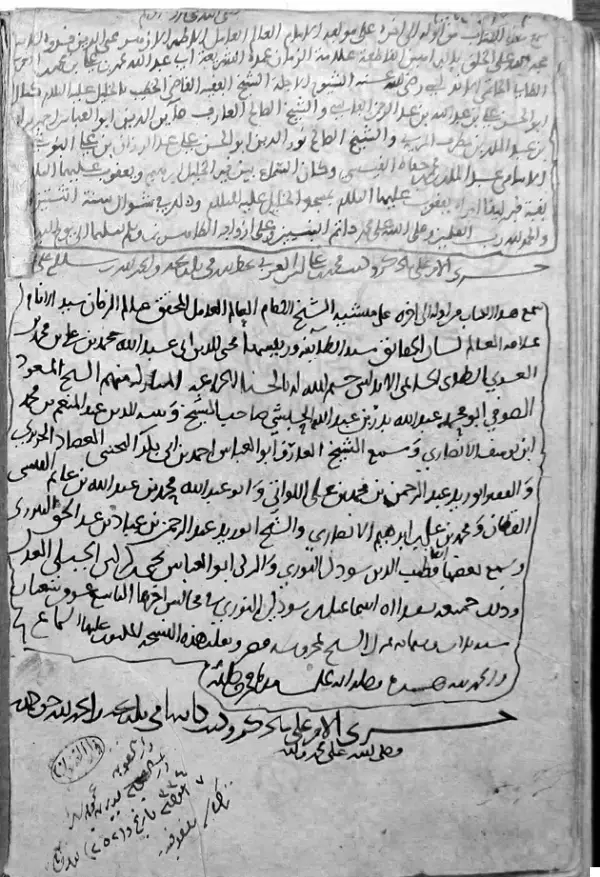
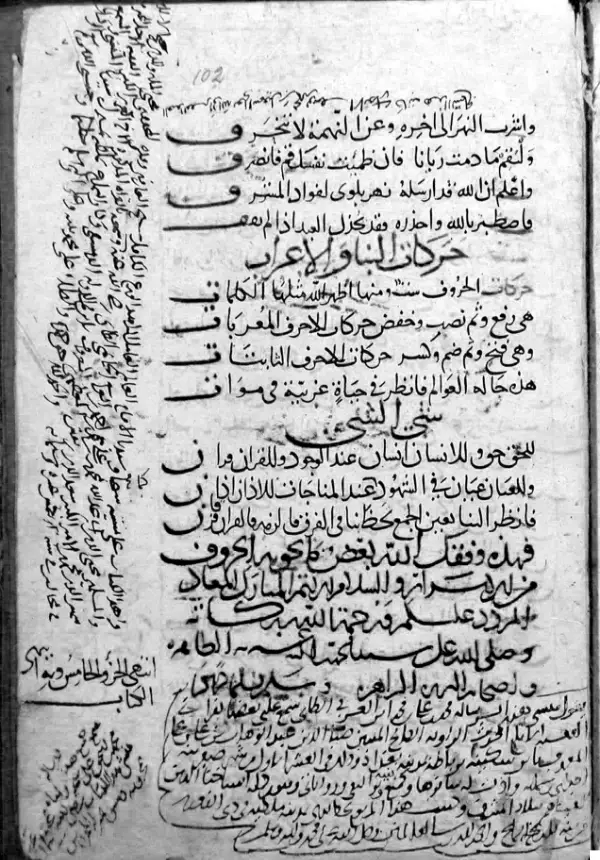
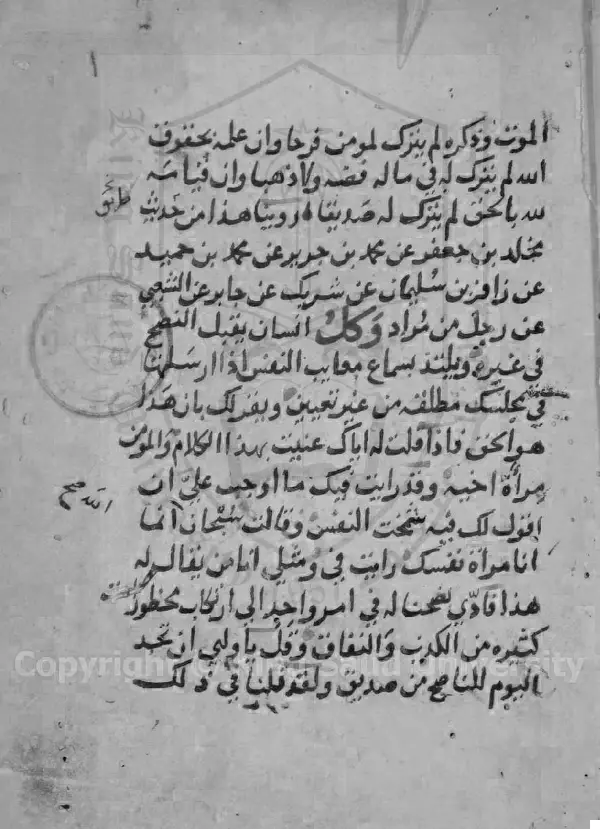
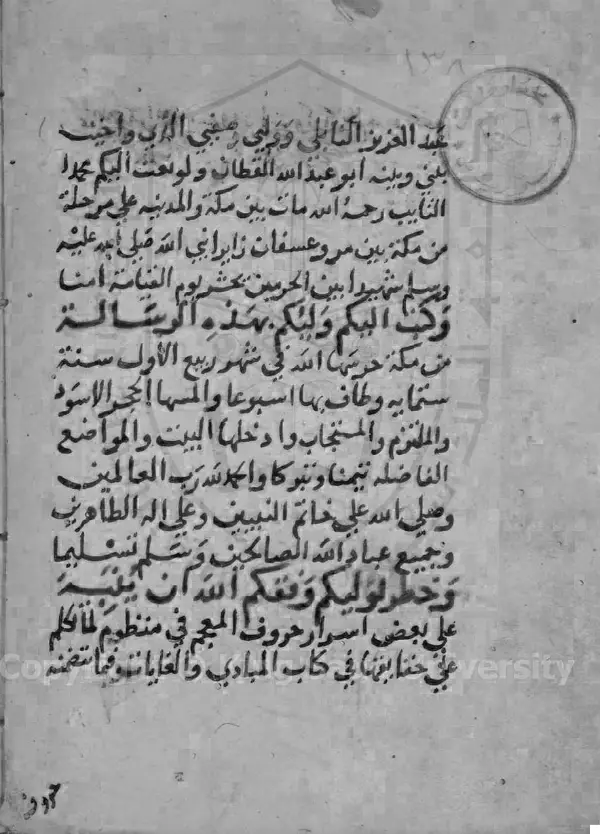
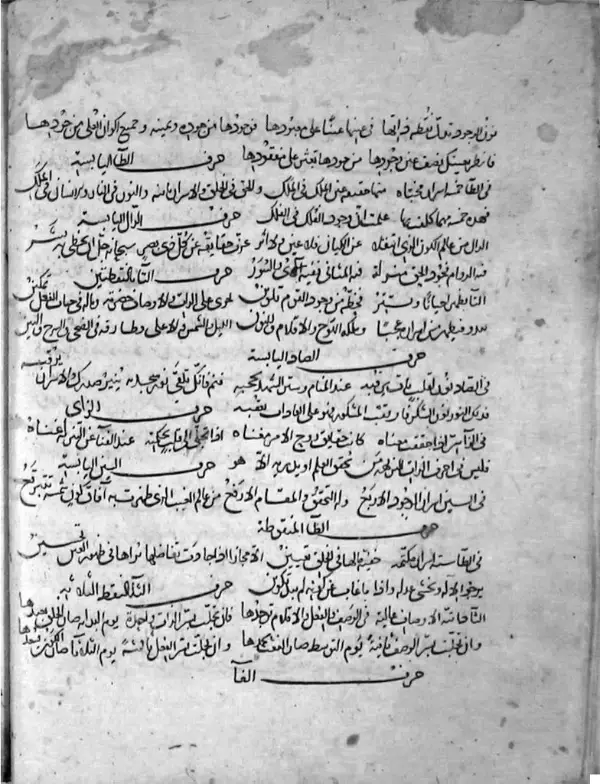
The Author: Shaykh al-Akbar
Muhyiddin Ibn al-Arabi (1165–1240)
Revered as the “Greatest Master” (Shaykh al-Akbar), Ibn al-Arabi stands as one of the most influential and profound figures in the history of Islamic thought. An Andalusian mystic, philosopher, poet, and scholar, his vast body of work explores the depths of metaphysics, cosmology, theology, and the nature of reality itself.
His teachings, particularly on the Unity of Being (Wahdat al-Wujud), have shaped Sufi traditions and Islamic philosophy for centuries. Kitab al-Tajalliyat, the “Book of Theophanies,” is a key work offering intimate insights into the nature of Divine Self-disclosure.
The Editor & Translator
Abrar Ahmed Shahi
Abrar Ahmed Shahi is a distinguished Pakistani Sufi scholar, Editor & Translator, recognized globally for his dedication to the works of Shaykh al-Akbar Muhiyiddin Ibn al-Arabi. In 2007, he founded the Ibn al-Arabi Foundation, an organization committed to the preservation, translation, and dissemination of the Shaykh’s vast literary heritage.
With over 19 years of focused engagement, Shahi has translated more than 30 of Ibn al-Arabi’s major and minor works into Urdu, making these complex texts accessible to a wider audience. His annotated translations are highly regarded for their scholarly rigor, clarity, and sensitivity to the nuances of the original Arabic.
Spiritually, Abrar Ahmed Shahi has been under the direct guidance of Shaykh Ahmad Muhammad Ali (Egypt) since 2015, he now make bayat and introduce Shaykh’s Tariqa in Pakistan.
In summary his work bridges academic scholarship and traditional spiritual understanding.
